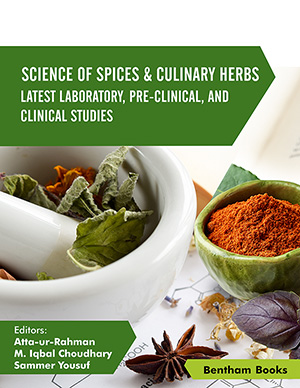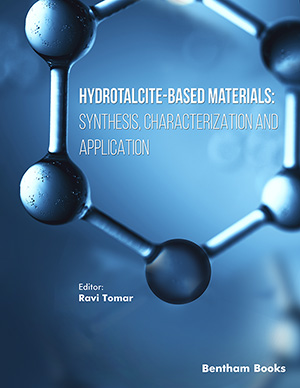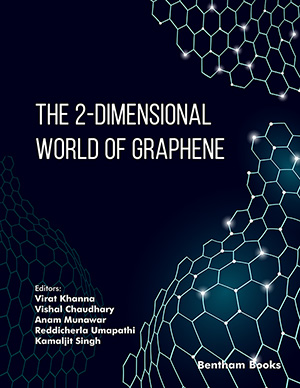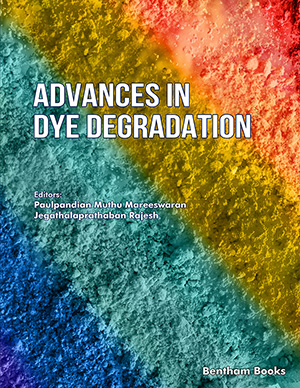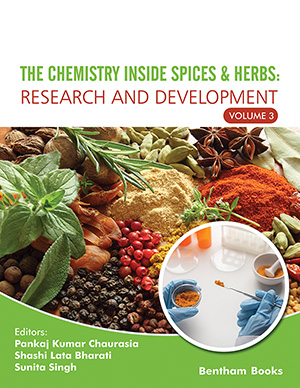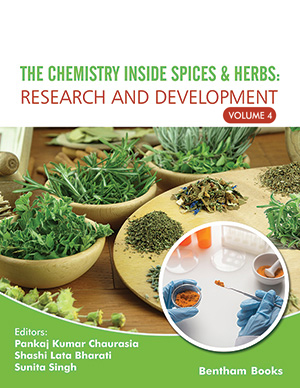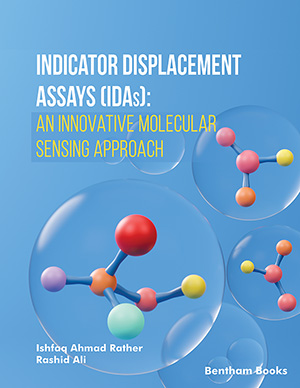
Abstract
Gastrointestinal (GI) cancers are one of the most common human malignancies and a leading cause of morbidity and mortality worldwide. One of the most prominent hallmarks of cancer and a basic trait of almost all GI malignancies is genomic/epigenomics alterations. DNA methylation is highlighted as a fundamental mechanism underlying the inactivation of several tumor-suppressor gene signaling pathways. Thus, sites of DNA methylation can be triggered for cancer therapy. Available therapeutic procedures for GI cancer show unsatisfactory efficacy, and some treatments are associated with severe side effects, including ulceration or bleeding. Therefore, it is essential to find alternative treatments. There is growing evidence indicating that some chemopreventive phytochemicals can combat cancer. One of the most systematically investigated nutraceuticals for its advantages in managing different diseases is curcumin (CUR). CUR is well known for its potent anticancer characteristics by targeting epigenetic mechanisms, with DNA methylation at the forefront. Prior investigations have indicated that CUR treatment can benefit GI cancers by controlling several signaling pathways related to oxidative stress and epigenomics pathways. The present literature displays recent evidence regarding DNA methylation alterations by CUR and its potential role in GI cancer prevention and treatment.
Keywords: Curcumin, DNA methylation, epigenetics, gastrointestinal cancer, chemopreventive phytochemicals, chimeric antigen receptor.
[http://dx.doi.org/10.1016/j.bpg.2003.10.003] [PMID: 15123073]
[http://dx.doi.org/10.1016/j.cell.2011.02.013] [PMID: 21376230]
[http://dx.doi.org/10.1371/journal.pgen.1001356] [PMID: 21483804]
[http://dx.doi.org/10.3390/ijms19041166] [PMID: 29649096]
[http://dx.doi.org/10.1016/B978-0-12-812433-8.00005-8]
[http://dx.doi.org/10.1016/S0140-6736(18)31268-6] [PMID: 30100054]
[http://dx.doi.org/10.3389/fgene.2021.583568] [PMID: 33833773]
[http://dx.doi.org/10.1016/B978-0-12-380866-0.60002-2] [PMID: 20920744]
[http://dx.doi.org/10.1158/0008-5472.CAN-15-3278] [PMID: 27256564]
[http://dx.doi.org/10.1371/journal.pone.0057709] [PMID: 23460897]
[http://dx.doi.org/10.1093/carcin/bgm206] [PMID: 17893234]
[http://dx.doi.org/10.1016/j.biopha.2021.112394] [PMID: 34781141]
[http://dx.doi.org/10.1016/j.ejca.2021.07.012] [PMID: 34391053]
[http://dx.doi.org/10.3748/wjg.v12.i46.7440] [PMID: 17167831]
[http://dx.doi.org/10.1016/j.bpg.2016.06.001] [PMID: 27644912]
[http://dx.doi.org/10.3390/ijms23126664] [PMID: 35743107]
[http://dx.doi.org/10.1016/j.lfs.2020.117754] [PMID: 32389833]
[http://dx.doi.org/10.2174/0929867329666220817125800] [PMID: 35980068]
[http://dx.doi.org/10.3390/ijms20051033] [PMID: 30818786]
[PMID: 25667441]
[http://dx.doi.org/10.1016/j.bcp.2007.08.016] [PMID: 17900536]
[http://dx.doi.org/10.1016/j.canlet.2008.03.025] [PMID: 18462866]
[http://dx.doi.org/10.4291/wjgp.v2.i1.1] [PMID: 21607160]
[http://dx.doi.org/10.1002/cncr.25414] [PMID: 20597137]
[http://dx.doi.org/10.3892/or.2015.4258] [PMID: 26351877]
[http://dx.doi.org/10.12659/MSM.902711] [PMID: 28077837]
[http://dx.doi.org/10.2217/fon-2018-0708] [PMID: 30843426]
[http://dx.doi.org/10.1016/j.lfs.2020.118580] [PMID: 33058920]
[http://dx.doi.org/10.1002/ijc.31867] [PMID: 30226272]
[http://dx.doi.org/10.3390/molecules20022728] [PMID: 25665066]
[http://dx.doi.org/10.4103/0250-474X.113555] [PMID: 23901162]
[http://dx.doi.org/10.3390/nu13020332] [PMID: 33498667]
[PMID: 26770097]
[PMID: 10101144]
[http://dx.doi.org/10.1016/B978-0-12-812494-9.00005-6]
[http://dx.doi.org/10.1016/j.biopha.2020.111119] [PMID: 33360051]
[http://dx.doi.org/10.1002/biof.1716] [PMID: 33606322]
[http://dx.doi.org/10.1016/j.jtcme.2016.08.002] [PMID: 28725630]
[http://dx.doi.org/10.1002/jcp.27442] [PMID: 30317564]
[http://dx.doi.org/10.1016/j.taap.2018.03.020] [PMID: 29571711]
[http://dx.doi.org/10.1002/iub.2209] [PMID: 31804772]
[http://dx.doi.org/10.1016/j.phrs.2018.09.012] [PMID: 30219581]
[http://dx.doi.org/10.1208/s12248-012-9432-8] [PMID: 23143785]
[http://dx.doi.org/10.1080/01635581.2020.1808232] [PMID: 32814463]
[http://dx.doi.org/10.2174/138920112798868791] [PMID: 21466422]
[http://dx.doi.org/10.3390/nu11102376] [PMID: 31590362]
[http://dx.doi.org/10.1007/978-0-387-46401-5_9]
[http://dx.doi.org/10.1007/s10787-019-00607-3] [PMID: 31140036]
[http://dx.doi.org/10.3389/fphar.2019.00152] [PMID: 30890933]
[http://dx.doi.org/10.1002/mc.23146] [PMID: 31820492]
[http://dx.doi.org/10.3389/fgene.2019.00514] [PMID: 31214247]
[http://dx.doi.org/10.1016/j.bmcl.2008.12.041] [PMID: 19112019]
[http://dx.doi.org/10.1007/s11030-010-9262-5] [PMID: 20697809]
[http://dx.doi.org/10.1038/nrg2005] [PMID: 17339880]
[http://dx.doi.org/10.1177/2040622314529325] [PMID: 24982752]
[http://dx.doi.org/10.1200/JCO.2004.07.151] [PMID: 15542813]
[http://dx.doi.org/10.1165/rcmb.2019-0150TR] [PMID: 31264905]
[http://dx.doi.org/10.1371/journal.pgen.1001134] [PMID: 20885785]
[http://dx.doi.org/10.1038/nature08514]
[http://dx.doi.org/10.1126/science.1237905] [PMID: 23828890]
[http://dx.doi.org/10.1038/ng.3291] [PMID: 26053498]
[http://dx.doi.org/10.1093/bfgp/elab035] [PMID: 34318313]
[http://dx.doi.org/10.1007/s11008-005-0064-2]
[http://dx.doi.org/10.1007/s00018-004-4201-1] [PMID: 15526163]
[http://dx.doi.org/10.3389/fgene.2020.00452] [PMID: 32655611]
[http://dx.doi.org/10.1016/B978-0-12-805388-1.00002-X]
[http://dx.doi.org/10.2217/epi.09.33] [PMID: 20495664]
[http://dx.doi.org/10.1038/labinvest.3780266] [PMID: 11304577]
[http://dx.doi.org/10.12659/MSM.926443] [PMID: 32893845]
[http://dx.doi.org/10.1002/ijc.31947] [PMID: 30362511]
[http://dx.doi.org/10.1038/sj.bjc.6605308] [PMID: 19809435]
[http://dx.doi.org/10.1593/tlo.09235] [PMID: 20360934]
[http://dx.doi.org/10.1371/journal.pone.0030590] [PMID: 22363450]
[http://dx.doi.org/10.1002/mc.21984] [PMID: 23192861]
[http://dx.doi.org/10.1002/gcc.20398] [PMID: 17099870]
[http://dx.doi.org/10.1016/j.bcp.2015.01.009] [PMID: 25640947]
[http://dx.doi.org/10.1016/j.cca.2013.05.002] [PMID: 23669186]
[http://dx.doi.org/10.1016/j.cgh.2019.07.045] [PMID: 31362118]
[http://dx.doi.org/10.1053/j.gastro.2009.02.085] [PMID: 19375421]
[http://dx.doi.org/10.1007/978-0-387-46401-5_6]
[http://dx.doi.org/10.1002/ardp.200900319] [PMID: 20726007]
[http://dx.doi.org/10.1007/s12199-007-0005-x] [PMID: 19568874]
[http://dx.doi.org/10.1111/j.1365-2036.2004.02075.x] [PMID: 15274662]
[http://dx.doi.org/10.1159/000320453] [PMID: 21273772]
[http://dx.doi.org/10.1016/j.gene.2020.144577] [PMID: 32171825]
[http://dx.doi.org/10.1073/pnas.2037852100] [PMID: 14519846]
[PMID: 1317264]
[http://dx.doi.org/10.4161/oxim.3.4.12858] [PMID: 20972369]
[http://dx.doi.org/10.1038/s41575-019-0189-8] [PMID: 31455888]
[http://dx.doi.org/10.1001/jama.299.11.1345] [PMID: 18349095]
[http://dx.doi.org/10.1053/j.gastro.2015.07.011]
[http://dx.doi.org/10.1038/nrgastro.2011.173] [PMID: 22009203]
[http://dx.doi.org/10.1093/carcin/bgy043] [PMID: 29547900]
[http://dx.doi.org/10.1016/S0140-6736(20)30974-0] [PMID: 32593337]
[PMID: 26029010]
[http://dx.doi.org/10.1038/s41571-018-0112-1] [PMID: 30341417]
[http://dx.doi.org/10.1016/S0002-9440(10)61104-2] [PMID: 12000709]
[http://dx.doi.org/10.1038/sj.onc.1206807] [PMID: 12902985]
[http://dx.doi.org/10.1016/j.bmc.2004.05.006] [PMID: 15210154]
[http://dx.doi.org/10.1016/j.canlet.2013.08.002] [PMID: 23933177]
[http://dx.doi.org/10.1038/s41389-021-00338-7] [PMID: 34272356]
[http://dx.doi.org/10.1038/s41572-020-00240-3] [PMID: 33479224]
[http://dx.doi.org/10.1016/S0278-6915(00)00101-0] [PMID: 11038236]
[http://dx.doi.org/10.1097/CEJ.0b013e3282f0c090] [PMID: 19077560]
[http://dx.doi.org/10.1016/j.gene.2018.02.024] [PMID: 29432829]
[http://dx.doi.org/10.1111/j.1440-1746.2011.06892.x] [PMID: 21880026]
[http://dx.doi.org/10.1155/2015/375349]
[http://dx.doi.org/10.1016/j.gene.2017.07.074] [PMID: 28764978]
[http://dx.doi.org/10.1080/01635581.2016.1180410] [PMID: 27266713]
[http://dx.doi.org/10.1002/mnfr.201300201] [PMID: 23754571]
[http://dx.doi.org/10.1002/hep.22486] [PMID: 18671304]
[http://dx.doi.org/10.3390/ijms17040465] [PMID: 27043533]
[http://dx.doi.org/10.1016/j.bcp.2011.07.065] [PMID: 21787756]
[http://dx.doi.org/10.4254/wjh.v7.i7.968] [PMID: 25954479]
[http://dx.doi.org/10.1080/10590500902885684] [PMID: 19412858]
[http://dx.doi.org/10.1155/2009/981963]
[http://dx.doi.org/10.1210/en.2008-1601] [PMID: 19299451]
[http://dx.doi.org/10.1038/labinvest.2014.42] [PMID: 24614199]
[http://dx.doi.org/10.1111/j.1749-6632.2009.04699.x] [PMID: 19723094]
[http://dx.doi.org/10.1016/j.phymed.2015.05.071] [PMID: 26321746]
[http://dx.doi.org/10.7314/APJCP.2016.17.S3.219]
[http://dx.doi.org/10.3390/pharmaceutics13122102] [PMID: 34959384]
[http://dx.doi.org/10.3390/antibiotics11030322] [PMID: 35326785]
[http://dx.doi.org/10.1159/000331733] [PMID: 21865729]
[http://dx.doi.org/10.1038/sj.onc.1207630] [PMID: 15273734]
[http://dx.doi.org/10.7314/APJCP.2014.15.9.3981] [PMID: 24935584]
[http://dx.doi.org/10.3892/or.2016.5246] [PMID: 27878254]
[http://dx.doi.org/10.1007/s00109-011-0856-x] [PMID: 22231745]
[http://dx.doi.org/10.1016/j.phymed.2013.11.006] [PMID: 24373545]
[http://dx.doi.org/10.1016/j.bcp.2011.07.093] [PMID: 21827739]
[http://dx.doi.org/10.3892/or.2015.3802] [PMID: 25682960]
[http://dx.doi.org/10.1016/j.ejmech.2017.12.039]
 45
45 3
3


















